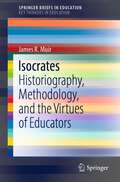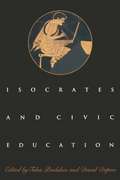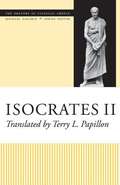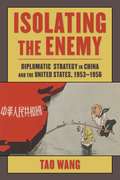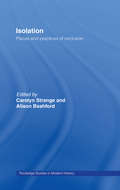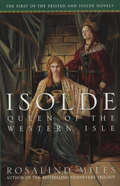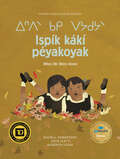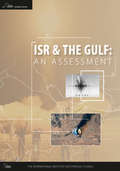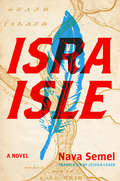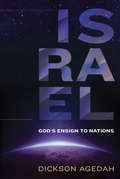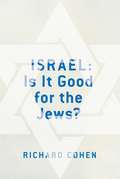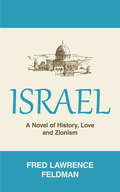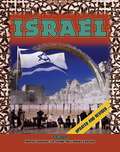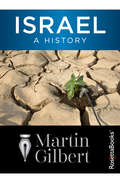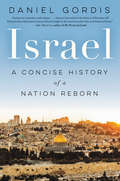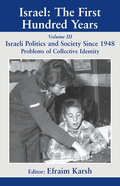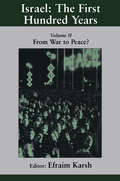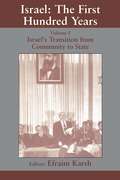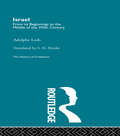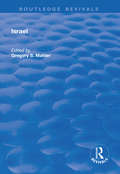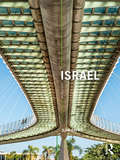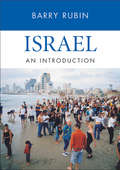- Table View
- List View
Isocrates: Historiography, Methodology, and the Virtues of Educators (SpringerBriefs in Education)
by James R. MuirIsocrates is one of the most remarkable and influential figures in the history of human thought. The influence of his ideas in the history of historical writing, rhetoric, the visual arts, music, religion and theology, political science, philosophy and, above all, educational philosophy and practice in Europe, Australia, North America, North Africa, and the Middle East are well established and widely known. This book argues careful study of the educational philosophy of Isocrates and its legacy can contribute to an improved understanding of the historiography of educational thought, his distinctive normative methodology in both political and educational philosophy, and his arguments about the primary importance of the virtues of self-knowledge and realistic self-appraisal for educational philosophers and practitioners. At a time when educational philosophy has an increasingly precarious academic existence and educationists are actively seeking new historiographical and methodological approaches to the philosophical study of education, there is much to be gained by recovering and reevaluating the historiography and normative methodology of Isocrates and the role they play in educational discourse and practice today.
Isocrates and Civic Education
by Takis Poulakos David DepewCivic virtue and the type of education that produces publicly minded citizens became a topic of debate in American political discourse of the 1980s, as it once was among the intelligentsia of Classical Athens. Conservatives such as former National Endowment for the Humanities chairman William Bennett and his successor Lynn Cheney held up the Greek philosopher Aristotle as the model of a public-spirited, virtue-centered civic educator. But according to the contributors in this volume, a truer model, both in his own time and for ours, is Isocrates, one of the preeminent intellectual figures in Greece during the fourth century B. C. In this volume, ten leading scholars of Classics, rhetoric, and philosophy offer a pathfinding interdisciplinary study of Isocrates as a civic educator. Their essays are grouped into sections that investigate Isocrates' program in civic education in general (J. Ober, T. Poulakos) and in comparison to the Sophists (J. Poulakos, E. Haskins), Plato (D. Konstan, K. Morgan), Aristotle (D. Depew, E. Garver), and contemporary views about civic education (R. Hariman, M. Leff). The contributors show that Isocrates' rhetorical innovations carved out a deliberative process that attached moral choices to political questions and addressed ethical concerns as they could be realized concretely. His notions of civic education thus created perspectives that, unlike the elitism of Aristotle, could be used to strengthen democracy.
Isocrates II
by Terry L. PapillonThis is the seventh volume in the Oratory of Classical Greece. This series presents all of the surviving speeches from the late fifth and fourth centuries BC in new translations prepared by classical scholars who are at the forefront of the discipline.<P><P> These translations are especially designed for the needs and interests of today's undergraduates, Greekless scholars in other disciplines, and the general public. <P> Classical oratory is an invaluable resource for the study of ancient Greek life and culture. The speeches offer evidence on Greek moral views, social and economic conditions, political and social ideology, law and legal procedure, and other aspects of Athenian culture that have been largely ignored: women and family life, slavery, and religion, to name just a few. The Athenian rhetorician Isocrates (436-338) was one of the leading intellectual figures of the fourth century. This volume contains his orations 4, 5, 6, 8, 12, and 14, as well as all of his letters. These are Isocrates' political works. Three of the discourses--Panathenaicus, On the Peace, and the most famous, Panegyricus--focus on Athens, Isocrates' home. Archidamus is written in the voice of the Spartan prince to his assembly, and Plataicus is in the voice of a citizen of Plataea asking Athens for aid, while in To Philip, Isocrates himself calls on Philip of Macedon to lead a unified Greece against Persia.
Isolada com meu Rebelde
by Dawn BrowerLady Odessa sempre foi apaixonada pelo Conde de Havenwood. Ele é o melhor amigo de seu irmão, e vizinho mais próximo. Estava cansada de ele a evitar, então decide remediar a situação. Não havia dúvida de que a amava, no entanto, não entendia porque ele insistia em negar. Ela sai de Kingsbridge, sua casa, no início de uma tempestade, para confrontá-lo. Gavin Barrington, Conde de Havenwood, nunca havia se declarado a Odessa por uma razão. Sua família era amaldiçoada, e se recusava a fazê-la passar por qualquer desastre que seu nome pudesse trazer. Contudo, quando ficam presos em uma cabine de caça, durante uma tempestade de neve de proporções épicas, tudo muda. Em meio a nevasca, eles têm que encontrar um meio de aceitar seu amor e descobrir como superar o maior medo de Gavin, para que tenham uma vida juntos.
Isolating the Enemy: Diplomatic Strategy in China and the United States, 1953–1956 (Studies of the Weatherhead East Asian Institute, Columbia University)
by Tao WangIn the crucial moment after the Korean War, the United States and the People’s Republic of China circled each other warily. They shifted between confrontation and conciliation, ratcheting up tension yet also embarking on peace initiatives.Tao Wang offers a new account of Sino–American relations in the mid-1950s that situates the two great powers in their international context. He reveals how both the United States and China adopted a policy of attempting to isolate their adversary and explores how Chinese and American leaders perceived and reacted to each other’s strategies. Although the policy of the Eisenhower administration was to contain China, Washington often overestimated Chinese aggressiveness, worrying allies and neutral states. Sensitive to the differences within the Western camp, Chinese leaders sought to convince American allies to persuade the United States to back down. Wang analyzes diplomatic maneuvering over a peace settlement in Indochina, an American defense pact with Taiwan, and the anticolonial Bandung Conference, showing how political pressure pushed American leaders to make concessions. He challenges the portrayal of Communist states as driven by ideology, showing that Chinese leaders adopted a pragmatic policy during these crucial years.Drawing on Chinese, Taiwanese, Russian, Vietnamese, British, and American archival material, including reclassified Chinese Foreign Ministry documents, Isolating the Enemy offers new insight into Chinese diplomacy in the 1950s and U.S. foreign policy under the Eisenhower administration through a nuanced portrayal of Sino–American interactions.
Isolation: Places and Practices of Exclusion (Routledge Studies in Modern History #Vol. 1)
by Alison Bashford Carolyn StrangeThis book examines the coercive and legally sanctioned strategies of exclusion and segregation undertaken over the last two centuries in a wide range of contexts. The political and cultural history of this period raises a number of questions about coercive exclusion. The essays in this collection examine why isolation has been such a persistent strategy in liberal and non-liberal nations, in colonial and post-colonial states and why practices of exclusion proliferated over the modern period, precisely when legal and political concepts of 'freedom' were invented. In addition to offering new perspectives on the continuum of medico-penal sites of isolation from the asylum to the penitentiary, Isolation looks at less well-known sites, from leper villages to refugee camps to Native reserves.
Isolde, Queen of the Western Isle (Tristan and Isolde #1)
by Rosalind MilesIsolde is a gifted healer and a princess. Tristan is an intrepid knight. When Isolde and Tristan fall in love, what unfurls is an epic of politics, faith, betrayal, and fate that will leave them both prey to evil but united by their perilous, abiding devotion.
Ispík kákí péyakoyak/When We Were Alone
by David A. RobertsonA young girl notices things about her grandmother that make her curious. Why does her grandmother have long, braided hair and beautifully coloured clothing? Why does she speak Cree and spend so much time with her family? As she asks questions, her grandmother shares her experiences in a residential school, when all of these things were taken away.When We Were Alone won the 2017 Governor General's Literary Award in the Young People's Literature (Illustrated Books) category, and was nominated for the TD Canadian's Children's Literature Award. This edition includes the text in Swampy Cree syllabics and Roman orthography, as well as the original English.
Ispík kákí péyakoyak/When We Were Alone
by David A. RobertsonA young girl notices things about her grandmother that make her curious. Why does her grandmother have long, braided hair and beautifully coloured clothing? Why does she speak Cree and spend so much time with her family? As she asks questions, her grandmother shares her experiences in a residential school, when all of these things were taken away.When We Were Alone won the 2017 Governor General's Literary Award in the Young People's Literature (Illustrated Books) category, and was nominated for the TD Canadian's Children's Literature Award. This edition includes the text in Swampy Cree syllabics and Roman orthography, as well as the original English.
ISR and the Gulf: An Assessment
by The International Institute for Strategic StudiesIntelligence, surveillance and reconnaissance (ISR) is today a core capability for the modern military, in peacetime and in war. ISR is and will remain a key enabler in the Gulf region in ongoing conflicts. There is still a reliance on the United States, and its ISR systems deployed in the Gulf, to facilitate ongoing operations and to provide situational awareness at the tactical, operational and strategic levels. However, even US ISR is finite, and there is growing demand for its resources in other regions. The Gulf Cooperation Council states have some ISR capacity, but this needs further development and improved exploitation to better address regional needs. Written by a team of IISS specialists, ISR & the Gulf: An Assessment considers the meaning of and requirement for intelligence, surveillance and reconnaissance in the context of the region. It examines the military needs and industrial aspirations of the Gulf Arab states regarding ISR, and the opportunities and risks these present. The report is a companion work to the Institute’s Missile-Defence Cooperation in the Gulf, and is similarly intended to help provide the basis for informed decision-making to support improved security in the region.
Isra-Isle: A Novel
by Jessica Cohen Nava SemelThis novel is inspired by a true historical event. Before Theodore Herzl there was Mordecai Manuel Noah, an American journalist, diplomat, playwright, and visionary. In September 1825 he bought Grand Island, downriver from Niagara Falls, from the local Native Americans as a place of refuge for the Jewish people and called it "Ararat." But no Jews came. What if they had followed Noah's call? In Nava Semel's alternate history Jews from throughout the world flee persecution and come to Ararat. Isra Isle becomes the smallest state in the US. Israel does not exist, and there was no Holocaust. In exploring this what-if scenario, Semel stimulates new thinking about memory, Jewish/Israeli identity, attitudes toward minorities, women in top political positions, and the place of cultural heritage.The novel is divided into three parts. Part 1, a detective story, opens in September 2001 when Liam Emanuel, an Israeli descendant of Noah, learns about and inherits this island. He leaves Israel intending to reclaim this "Promised Land" in America. Shortly after he arrives in America Liam disappears. Simon T. Lenox, a Native American police investigator, tries to recover Israel's "missing son." Part 2 flashes back to the time and events surrounding Mordecai Noah's purchase of the island from the local Native Americans. Part 3 poses an alternate history: the rise of a successful modern Jewish city-state, Isra Isle, on the northern New York and Canadian border-a metropolis that looks remarkably like New York City both before and after 9/11-in which the Jewish female governor campaigns to become president of the United States.Nava Semel has published novels, short stories, poetry, plays, children's books, and a number of TV scripts. Her books have been translated and published in many countries. Her book, Becoming Gershona, received the 1990 National Jewish Book Award in the US.
Israel: God's Ensign to Nations
by Dickson AgedahWhy has such a small nation and its people--Israel and the Jews--been the target of so much hatred, for so long? Today's alarming headlines from the Middle East, and tomorrow's trajectory for the region, cannot truly be understood without knowing its complicated history. Israel has been planted as a flag, pointing the world to God. Weaving together biblical and human records, Dickson Agedah brings fresh light on the religious, political, and military roots of the ongoing unrest centered on the land of Jesus' birth. Behind the enmity to the Jewish people and their homeland, he explains, is an all-out spiritual effort to thwart God's plan for the world. A review of Israel’s tortuous and turbulent history reveals and verifies the covenant that God has with His people--an immutable promise extending to all peoples. And while sobering and surprising, this study offers an inspiring message of hope in the sure fulfillment of God's eternal victory and restoration.
Israel: Years of Challenge
by David Ben-GurionThe history of the Jewish homeland by the personification of Israel's robust and resolute spirit.
Israel: Is It Good For The Jews?
by Richard CohenA very personal journey through Jewish history (and Cohen's own), and a passionate defense of Israel's legitimacy.Richard Cohen's book is part reportage, part memoir--an intimate journey through the history of Europe's Jews, culminating in the establishment of Israel. A veteran, syndicated columnist for The Washington Post, Cohen began this journey as a skeptic, wondering in a national column whether the creation of a Jewish State was "a mistake." As he recounts, he delved into his own and Jewish history and fell in love with the story of the Jews and Israel, a twice-promised land--in the Bible by God, and by the world to the remnants of Europe's Jews. This promise, he writes, was made in atonement not just for the Holocaust, but for the callous indifference that preceded World War II and followed it--and that still threatens. Cohen's account is full of stories--from the nineteenth century figures who imagined a Zionist country, including Theodore Herzl, who thought it might resemble Vienna with its cafes and music; to what happened in twentieth century Poland to his own relatives; and to stories of his American boyhood. Cohen describes his relationship with Israel as a sort of marriage: one does not always get along but one is faithful.
Israel
by Fred Lawrence FeldmanEpic in scope, rich in history, ISRAEL is a vivid and searing portrait of historical Palestine and America. This powerful and compelling saga tells the story of two Jewish families caught in the tide of history, with all the drama, passion, love, valor and daring of an enduring dream - the founding of the state of ISRAEL.Danny Horodetzky - He was the son of immigrants, a street-wise kid from New York, willing to turn to a life of crime... but a new nation needed his fiery spirit.Rebecca Horodetzky - Danny's sister had everything - wealth, fame and power. Her world seemed secure... until a handsome and charismatic Zionist came into her life.Herschel Kol - He would never forget - or forgive - the young Arab who had taken his father's life. But the cause he served would demand more than vengeance.Encompassing a vast canvas of interwoven locales, characters and stories, ISRAEL is the monumental tale of the men and women who fought to make the Jewish Homeland a reality.Fred Lawrence Feldman is a published fiction and non-fiction author. He lives in Massachusetts, north of Boston.
Israel
by Adam M. GarfinkleIn 1948 the world witnessed an extraordinary event: the birth of Israel. After two millennia as a stateless people scattered across the globe and frequently persecuted by the societies in which they lived-most tragically during the Holocaust of World War II-Jews finally had a homeland. And the New Jersey-sized country was in Palestine, the ancestral land of the Jewish people. In the years since 1948, Israel has become the Middle East's most powerful, and most democratic, country. But the foundation and defense of the Jewish state ultimately came at the expense of a state for the Palestinians, another people with ancient ties to Palestine. For decades Israeli and Palestinian blood has stained the land, a string of peace initiatives collapsing amid the seemingly endless cycle of attack and retaliation. Resolving the conflict in a manner that preserves Israel's security remains an elusive goal not just for Israel, but also for the many countries with interests in the strategic Middle East, including the United States. Discusses the geography, history, economy, government, religion, people, foreign relations, and communities of Israel.
Israel: A History
by Martin Gilbert&“The most comprehensive account of Israeli history yet published&” (Efraim Karsh, The Sunday Telegraph). Fleeing persecution in Europe, thousands of Jewish immigrants settled in Palestine after World War II. Renowned historian Martin Gilbert crafts a riveting account of Israel&’s turbulent history, from the birth of the Zionist movement under Theodor Herzl to the unexpected declaration of its statehood in 1948, and through the many wars, conflicts, treaties, negotiations, and events that have shaped its past six decades—including the Six Day War, the Intifada, Suez, and the Yom Kippur War. Drawing on a wealth of first-hand source materials, eyewitness accounts, and his own personal and intimate knowledge of the country, Gilbert weaves a complex narrative that&’s both gripping and informative, and probes both the ideals and realities of modern statehood. &“Martin Gilbert has left us in his debt, not only for a superlative history of Israel, but also for a restatement of the classic vision of Zion, in which a Middle East without guns is not a bedtime story but an imperative long overdue. This is the vision for which Yitzhak Rabin gave his life. This book is tribute to his memory.&” —Jonathan Sacks, The Times (London)
Israel: A Concise History of a Nation Reborn
by Daniel GordisThe first comprehensive yet accessible history of the state of Israel from its inception to present day, from Daniel Gordis, "one of the most respected Israel analysts" (The Forward) living and writing in Jerusalem.Israel is a tiny state, and yet it has captured the world's attention, aroused its imagination, and lately, been the object of its opprobrium. Why does such a small country speak to so many global concerns? More pressingly: Why does Israel make the decisions it does? And what lies in its future?We cannot answer these questions until we understand Israel's people and the questions and conflicts, the hopes and desires, that have animated their conversations and actions. Though Israel's history is rife with conflict, these conflicts do not fully communicate the spirit of Israel and its people: they give short shrift to the dream that gave birth to the state, and to the vision for the Jewish people that was at its core. Guiding us through the milestones of Israeli history, Gordis relays the drama of the Jewish people's story and the creation of the state. Clear-eyed and erudite, he illustrates how Israel became a cultural, economic and military powerhouse--but also explains where Israel made grave mistakes and traces the long history of Israel's deepening isolation. With Israel, public intellectual Daniel Gordis offers us a brief but thorough account of the cultural, economic, and political history of this complex nation, from its beginnings to the present. Accessible, levelheaded, and rigorous, Israel sheds light on the Israel's past so we can understand its future. The result is a vivid portrait of a people, and a nation, reborn.
Israel: Volume III: Politics and Society since 1948 (Israeli History, Politics and Society #Vol. 2)
by Efraim KarshSince its founding in 1948 Israel has faced many political, social and psychological challenges, unfamiliar to other nations on the western democratic political model and peculiar to the Jewish state. This work covers the role of politics in Israel since 1948.
Israel: Volume II: From War to Peace? (Israeli History, Politics and Society #Vol. 2)
by Efraim KarshThe end of the British mandate in Palestine heralded the birth of the new state of Israel. It also marked the end of one of the most tumultuous and momentous chapters in Israeli history. But the new state, born into a hostile environment and struggling with the manifold demands of sovereignty, would have to face many post-Independence challenges to its existence, not least in the form of armed conflict and confrontation with its Arab neighbours. This volume examines the conflicts that from the 1948 until the 1967 Six Day War came to define the Israeli struggle for existence.
Israel: Volume I: Israel’s Transition from Community to State (Israeli History, Politics and Society #Vol. 2)
by Efraim KarshThe Zionist Movement was born in the wake of Jewish emancipation in Western Europe, and at a time of increased persecution in Eastern Europe. This volume addresses the intellectual, social and political ramifications of Jewish settlement in Eretz Israel before the creation of the State of Israel.
Israel: From Its Beginnings To The Middle Of The Eighth Century (The\history Of Civilization Ser. #Vol. 6013833)
by Adolphe LodsOriginally published between 1920-70,The History of Civilization was a landmark in early twentieth century publishing. It was published at a formative time within the social sciences, and during a period of decisive historical discovery. The aim of the general editor, C.K. Ogden, was to summarize the most up-to-date findings and theories of historians, anthropologists, archaeologists and sociologists. This reprinted material is available as a set or in the following groupings, or as individual volumes: * Prehistory and Historical Ethnography Set of 12: 0-415-15611-4: £800.00 * Greek Civilization Set of 7: 0-415-15612-2: £450.00 * Roman Civilization Set of 6: 0-415-15613-0: £400.00 * Eastern Civilizations Set of 10: 0-415-15614-9: £650.00 * Judaeo-Christian Civilization Set of 4: 0-415-15615-7: £250.00 * European Civilization Set of 11: 0-415-15616-5: £700.00
Israel: Development And Conflict (The\international Library Of Politics And Comparative Government)
by Gregory S. MahlerThis title was first published in 2000: The International Library of Politics and Comparative Government brings together in one series, the most significant journal articles to appear in the field of comparative politics in the last twenty-five years. It makes accessible to teachers, researchers and students an extensive range of essays which provide an indispensable basis for understanding both the established conceptual terrain and the new ground being broken in the fast changing field of comparative political analysis. A number of acknowledged experts have been invited to act as editors for the series. They preface each volume with an introductory essay in which they review the basis for the selection of articles and suggest future directions of research and investigation in the subject area. An invaluable resource for all those working in the field of comparative government and politics.
Israel (The Contemporary Middle East)
by Ilan PappéIsrael is not the only ‘new’ state around, but it is one of the few states whose legitimacy is still questioned, and its future affects the future of the Middle East as a whole and probably the stability of the international system. The reasons for this unique reality lie in its past and the particular historical circumstances of its birth. This book seeks to update analysis of the political history, contemporary politics, economics and foreign policy of this unique state. The first part of the book provides a general history of Israel since its inception until 2000. This general history evolves around the political development of the state, beginning with its origins in the early Zionist history (1882–1948) and ending with the turn of the century. The second part focuses on three contemporary aspects of present-day Israel: its political economy, its culture and its international relations. An epilogue describes Israel’s complex international image today and its impact on the state and its future. Providing a solid infrastructure from which readers can form their own opinions, this book offers a fresh perspective on developments both on the ground and in recent scholarship, and is essential reading for students, journalists and policy makers with an interest in Middle Eastern History, Jewish Studies and Israel Studies.
Israel: An Introduction
by Barry RubinThis comprehensive book provides a well-rounded introduction to Israel—a definitive account of the nation's past, its often controversial present, and much more. Written by a leading historian of the Middle East,Israelis organized around six major themes: land and people, history, society, politics, economics, and culture. The only available volume to offer such a complete account, this book is written for general readers and students who may have little background knowledge of this nation or its rich culture. Based on research by scholars with extensive firsthand knowledge of Israel, this book offers accessible, clearly explained material, enhanced with a generous selection of images, maps, charts, tables, graphs, and sidebars. This book provides readers with a solid foundation of knowledge about Israel and provides useful reference lists by topic for those inspired to read further.
